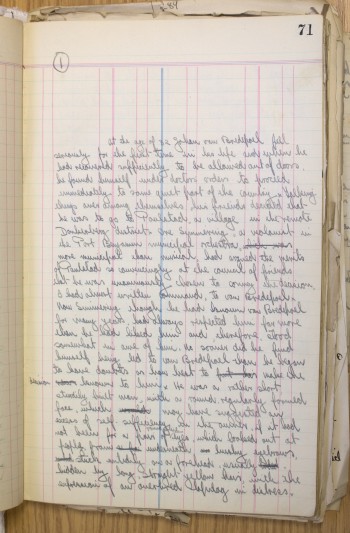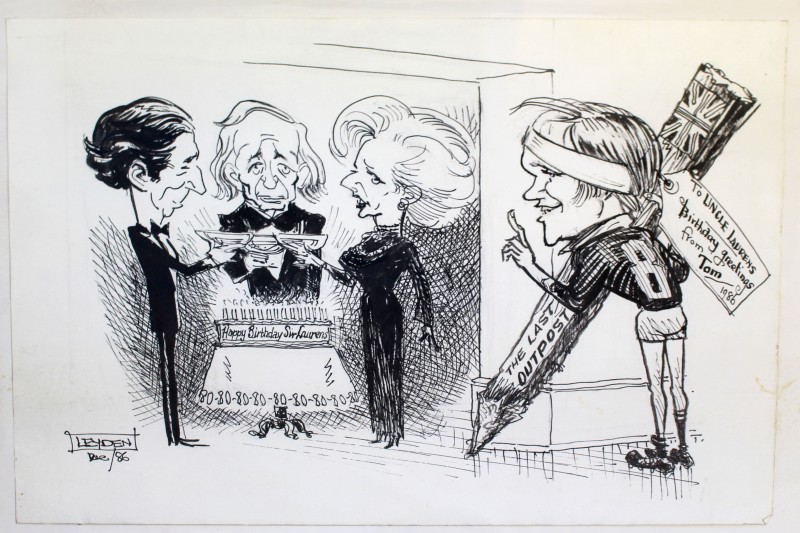With the aid of the Friends of the National Libraries and the Arts Council England/Victoria & Albert Museum Purchase Grant Fund, Durham University Library has recently acquired the papers of Laurens van der Post, one of the most important and influential literary figures of the 20th century. The collection is perhaps unique, in that van der Post was directly or indirectly involved in many of the key literary and political developments of the period. The papers reflect his long, extraordinary and occasionally controversial life. The papers catalogued so far include correspondence relating to his involvement in the literary circles of the 1920s and 1930s, most notably a series of surprisingly revealing letters from the reactionary South African poet and occasional bull-fighter Roy Campbell, whose attacks on the Bloomsbury set and their effeminate nature are as entertaining as they are informative.
Van der Post was not the archetypal secluded literary figure. During the Second World War he fought in Abyssinia and Indonesia, and was finally interned in April 1942 by the Japanese in a Prisoner of War camp at Bandong, Java, where he helped to organise an educational programme for other internees. Among his papers is found this Christmas 1942 issue of 'Mark Time’, a beautifully illustrated satirical newsletter edited by G. F. Webb. In 1946 van der Post was employed as an Intelligence Officer in Indonesia, sending signals to the Dutch government on the current movements of Indonesian nationalists such as Sutan Sjahrir and Muhammad Hatta. Even later in life van der Post remained actively involved in politics, corresponding with Mangosuthu Buthelezi, leader of the Inkatha Freedom Party in South Africa, and helping to set up meetings between Buthelezi and anti-apartheid world leaders. The letters highlight a great deal of respect for Buthelezi’s vision for South Africa; not so for Nelson Mandela, for whom Laurens had little time. The papers even include correspondence with the Dalai Lama during the 1990s, with Laurens expressing his horror at the human rights abuses perpetrated by Chinese forces in Tibet.
The description above barely scratches the surface of the collection’s importance and is only a reflection of what has been catalogued thus far. There are significant series of correspondence which have yet to be examined. These include, but are certainly not limited to, correspondence with Carl Jung, William Plomer, Benjamin Britten, T. S. Elliot, Leonard Woolf, Timberlake Wertenbaker, Lord Mountbatten, Nagisa Oshima (film director), Yehudi Menuhin, Stephen Spender, Peter Pears, HRH the Prince of Wales (Laurens was a close friend) and Margaret Thatcher. There are also draft manuscripts of his best-selling works, notably The Lost World of the Kalahari (1958) which describes a pioneering field study of the San people or Bushmen, undertaken by Laurens in the 1950s.

